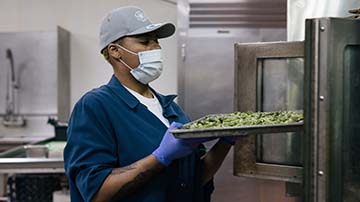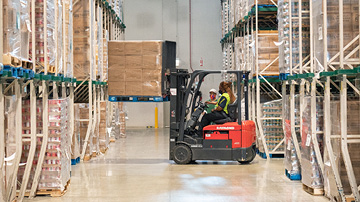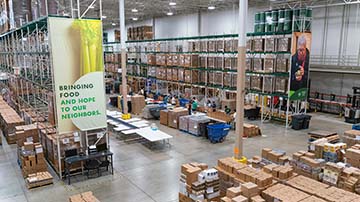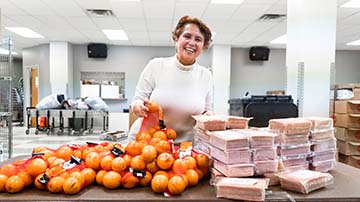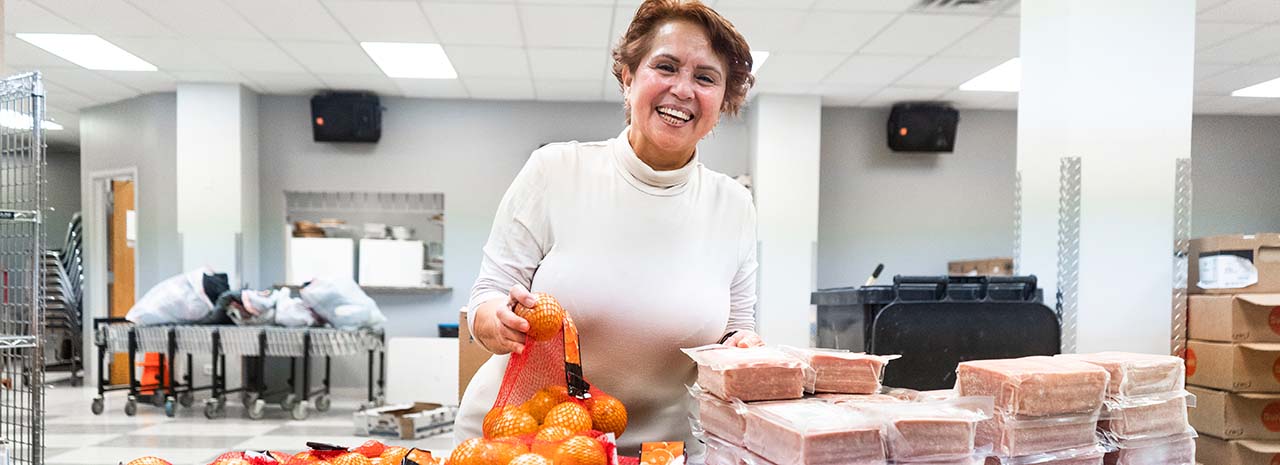
Prioritizing food equity
The need in Belmont Cragin was significant prior to COVID-19. Pantry leaders attributed the increase largely to the overwhelming number of jobs lost in their community during the pandemic. Belmont Cragin, a majority Latino neighborhood, is one of the communities with the state’s highest number of COVID cases. In addition to a higher need for food assistance, Pastor Tony Mariscal said the neighborhood’s high volume of frontline workers and multigenerational households made its residents more vulnerable to the virus itself.
But in the face of greater need, Iglesia Evangelica Emanuel is answering the call – serving more people than ever before.
Addressing hunger and its root causes means removing systemic inequities that exist in Chicago and Cook County. These inequities have long left certain groups – particularly Black and Brown households as well as other historically marginalized communities – at disproportionate risk of poverty and food insecurity. The COVID-19 pandemic only worsened those disparities.
The Food Depository is determined to help change that story. Prior to both the pandemic and the racial justice reckoning of 2020, the Food Depository was already advancing equity as a core value of the organization. But as our community strives to emerge from COVID-19, that work has become more important than ever.
“As a food justice organization, we’re committed to investing in our community partners to provide food and hope for anyone in need. We must work together to build a more equitable and just food system that works for all.”
Kate Maehr, the Food Depository’s executive director and CEO
At the Food Depository, we collect and analyze data to identify inequities in food access, and we use that information to deliver more food and resources where they’re most needed. In fiscal year 2021, 60% of food was distributed to high priority communities facing the highest rates of food insecurity and historic disinvestment.
To continue expanding food access in predominately Black and Brown communities, the Food Depository also announced investments of over $8 million during fiscal year 2021 to assist food pantry partners – like Iglesia Evangelica Emanuel – already serving in those areas and to open new spaces where people can receive food, access benefits and find other needed resources.
As part of the solution, the Food Depository is proudly serving on the on the City of Chicago’s Food Equity Council, alongside the Mayor’s Office, the Department of Public Health (CDPH) and Family and Support Services (DFSS). This collaboration is developing a five year plan to address the immediate need and root causes of food and nutrition insecurity, post-COVID.
In addition to addressing needs within the Black and Brown communities, there is also a pressing need for food and resources among other minority groups, including the LGBTQ+ population. About 27% of LGBTQ+ adults in the United States “experienced a time in the last year when they did not have enough money to feed themselves or their family,” compared to 17% for non-LGBTQ+ adults, according to a 2016 study from the Williams Institute at UCLA’s School of Law. The Food Depository has proudly partnered with several organizations that are working to directly to address that injustice, including the Center on Halsted, The Night Ministry, Care for Real, and Brave Space Alliance to help address food insecurity among our LGBTQ+ neighbors.
We will continue our commitment to lift up communities of color and address the root causes of hunger for all. Returning to a pre-pandemic level of need is unacceptable.
STORIES
- Food pantries continue to meet elevated demand
- Prepared meals reach neighbors with unique needs
- Food Depository network expands to support neighbors in need
- Prioritizing food equity
- Through ongoing crisis, volunteers rise to the challenge
- Strong anti-hunger policies lessen crisis
- Feeding kids during a year of disruption
- Paid job training programs provide new start
- Serving a heightened need
